Engine Regenerative

What are the benefits of a gasoline hybrid engine ?
The article discusses the advantages of a gasoline hybrid engine, which is a combination of a traditional internal combustion engine and an electric motor. The benefits include improved fuel efficiency through reduced fuel consumption, regenerative braking, and start-stop technology; lower CO2 emissions and decreased pollutants resulting in cleaner air quality; and enhanced performance with instant torque, smooth driving experience, and extended brake life due to regenerative braking. Overall, gasoline hybrid engines provide a balance between power and efficiency, making them an attractive option for eco-conscious drivers.
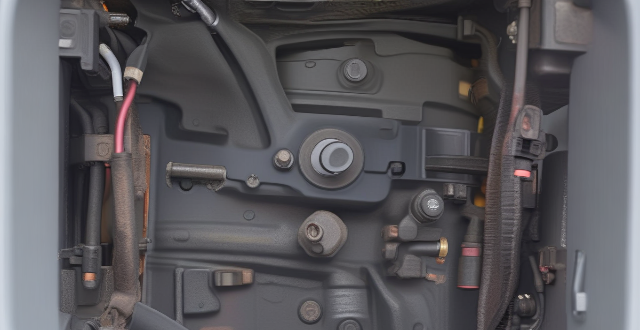
Can an electronic speed controller be used in a car engine ?
The question of whether an electronic speed controller (ESC) can be used in a car engine depends on the type of engine. In traditional internal combustion engines (ICE), which use gasoline or diesel as fuel, an ESC cannot be used because these engines rely on mechanical systems for speed control. However, in electric cars, which use electric motors as their primary source of propulsion, an ESC is essential for controlling the speed of the motor and protecting it from damage. Therefore, while an ESC cannot be used in ICE vehicles, it plays a crucial role in electric vehicles.
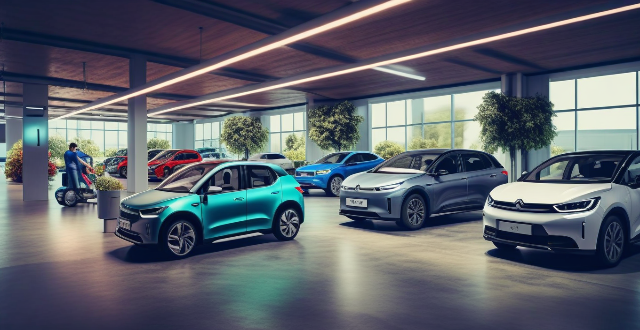
How does regenerative braking contribute to the efficiency of an EV ?
Regenerative braking in electric vehicles is a technology that converts the kinetic energy usually lost during braking into electricity, which can be stored in the battery and used to power the vehicle. This process significantly contributes to the efficiency of an electric vehicle (EV) by reducing energy consumption and extending the driving range. The key points include energy recovery, battery lifespan, reduced wear and tear, and improved fuel economy. The process involves detecting deceleration, motor acting as a generator, energy storage, and brake blending. The benefits of regenerative braking include increased efficiency, longer range, less battery depletion, and environmentally friendly. Regenerative braking plays a crucial role in enhancing the efficiency of electric vehicles by recycling energy that is typically lost during conventional braking methods.

How efficient is a Series Hybrid Electric Vehicle ?
Series hybrid electric vehicles (SHEVs) combine internal combustion engines and electric motors to power wheels, offering efficiency benefits through regenerative braking, engine optimization, and electric drive. However, added weight, system complexity, and battery depletion can be drawbacks. The efficiency of SHEVs hinges on design and driving habits.
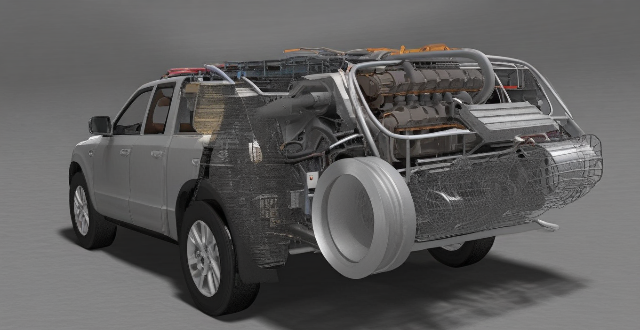
What are the main components of a fuel vehicle's engine ?
The main components of a fuel vehicle's engine include the cylinder block, pistons, connecting rods, crankshaft, camshaft, valves, head gasket, cylinder head, timing belt or chain, oil pump, spark plugs, intake and exhaust manifolds, cooling system, and lubrication system. These components work together to ensure efficient combustion, energy conversion, and overall engine operation.
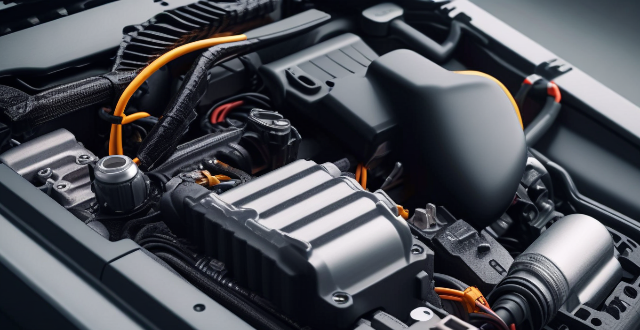
What are the key components of a CHEV's drive system ?
The key components of a CHEV's drive system include the engine, electric motor, transmission, battery pack, and energy management system. The engine generates the majority of the power needed to propel the vehicle, while the electric motor provides additional power during acceleration or hill climbing. The transmission transfers power from the engine and electric motor to the wheels, and may be a conventional automatic or manual transmission or a specialized hybrid transmission. The battery pack stores electrical energy generated by the electric motor during regenerative braking and provides power to the electric motor when needed. The energy management system controls the flow of energy between the engine, electric motor, and battery pack, determining when to use each source of power based on driving conditions, state of charge of the battery, and driver demand. These components work together to provide a seamless driving experience while maximizing fuel efficiency and reducing emissions.

How does regenerative braking work in a Compound Hybrid Electric Vehicle ?
Regenerative braking in a compound hybrid electric vehicle captures the kinetic energy of decelerating motion, converting it into usable electrical energy. This technology improves fuel efficiency, reduces brake wear, and enhances driving experience. However, its implementation involves complex systems and higher costs, requiring careful consideration of battery capacity for effective energy storage.
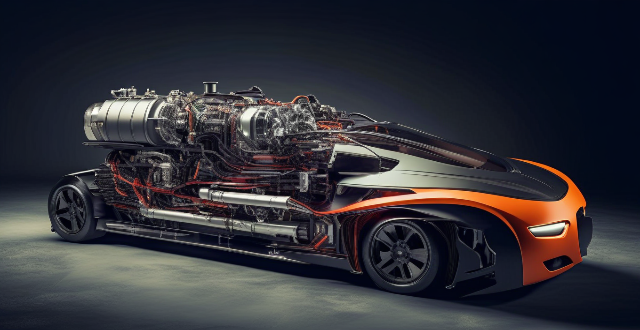
Can I still use gasoline in a gasoline hybrid car ?
Gasoline hybrid cars combine a traditional gasoline engine with an electric motor for improved fuel efficiency and reduced emissions. While they still require gasoline to operate the internal combustion engine, they offer significant savings in fuel costs over time. To maximize fuel efficiency in a gasoline hybrid car, drivers should practice eco-driving techniques, perform regular maintenance, and utilize regenerative braking settings. Gasoline hybrid cars represent a step towards reducing our reliance on fossil fuels and transitioning to cleaner energy sources.

How does regenerative braking work in electric drive systems ?
Regenerative braking in electric vehicles converts kinetic energy into electrical energy, improving efficiency and extending battery range. The process involves the motor acting as a generator when the brake pedal is pressed, generating electricity that is stored in the battery pack for later use. This technology not only reduces energy waste but also provides a smoother driving experience with reduced wear and tear on brake components.
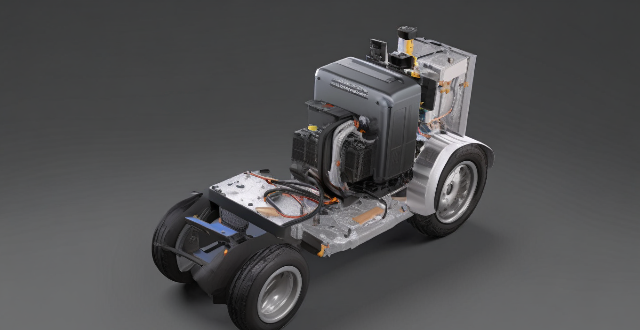
What are the key components of a Series Hybrid Electric Vehicle ?
Key components of a series hybrid electric vehicle (SHEV) include the battery pack, electric motor, internal combustion engine (ICE), generator, transmission, control unit, and regenerative braking system. The battery pack stores energy from the ICE or regenerative braking system and provides it to the electric motor when needed. The electric motor drives the wheels of the vehicle, while the ICE generates electricity to charge the battery pack rather than directly powering the wheels. The generator converts mechanical energy from the ICE into electrical energy to charge the battery pack. The transmission transfers power from the electric motor to the wheels using a single-speed reduction gearbox. The control unit manages the flow of energy between the various components and optimizes their operation. Finally, the regenerative braking system captures energy lost during braking and uses it to recharge the battery pack, increasing fuel efficiency and extending the range of the vehicle.

How does a Series Hybrid Electric Vehicle compare to a Parallel Hybrid Electric Vehicle ?
Comparison between Series Hybrid Electric Vehicle and Parallel Hybrid Electric Vehicle highlights the differences in power transmission, battery dependency, fuel efficiency, performance, cost, complexity, and regenerative braking capabilities of both types. The series hybrid is more efficient for city driving, while the parallel hybrid suits highway driving better. The choice depends on the user's driving habits and needs, with both offering environmental and economic benefits over traditional vehicles.

How long do diesel hybrid engines last ?
This article discusses the factors that affect the lifespan of diesel hybrid engines and provides an estimate of their expected lifespan. It also offers tips for maximizing the lifespan of these engines through proper maintenance, responsible driving habits, high-quality fuel, and protection against extreme temperatures.
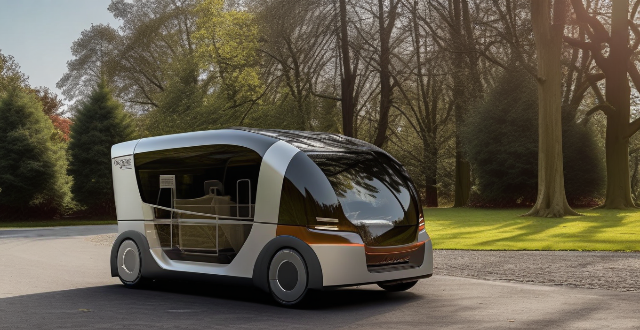
What is a Series Hybrid Electric Vehicle (SHEV) ?
A Series Hybrid Electric Vehicle (SHEV) is a type of hybrid vehicle that uses an internal combustion engine and an electric motor to power the wheels. The engine generates electricity to charge the battery pack or provide power to the electric motor, which then drives the wheels. Some SHEVs have regenerative braking systems that capture energy during braking and use it to recharge the battery pack. Advantages of a SHEV include improved fuel economy, reduced emissions, increased torque, and quiet operation. Disadvantages include complexity, weight, limited range, and higher cost.
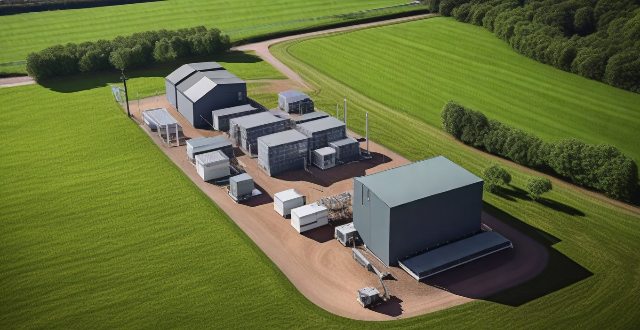
How efficient is a Compound Hybrid Electric Vehicle in terms of fuel consumption ?
Compound Hybrid Electric Vehicles (CHEVs) are efficient in terms of fuel consumption due to their dual power sources, regenerative braking, advanced energy management system, aerodynamic design, and weight reduction.

How does a hybrid car work ?
A hybrid car uses a combination of an internal combustion engine and electric motors to achieve better fuel economy and reduced emissions. It consists of key components like the ICE, electric motor(s), battery pack, transmission, control unit, and a charging system that includes regenerative braking. The car operates in various modes: starting with the electric motor, driving with either or both power sources, using regenerative braking for efficiency and battery charging, minimizing idling by shutting down the ICE at stops, and managing the battery's state of charge and health. Benefits include improved gas mileage, lower emissions, enhanced performance, and reduced wear and tear on vehicle components.
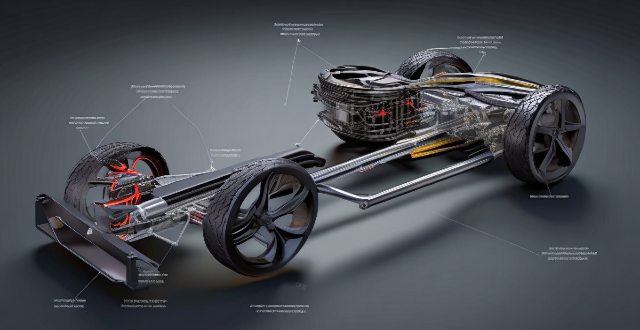
How does a gasoline hybrid car work ?
Gasoline hybrid vehicles, known as HEVs, merge an ICE with an electric motor for enhanced efficiency and reduced emissions. Key components include the ICE, electric motor, battery pack, transmission, and a generator/alternator. These cars can operate in various modes: fully on ICE power, purely electric, combined power, or through regenerative braking. The energy management controller optimizes power distribution for peak efficiency. Benefits of gasoline hybrids include better fuel economy, lower emissions, extended brake life, and potential tax incentives.
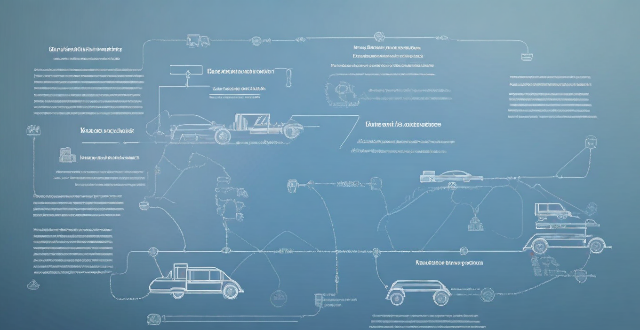
What are the benefits of owning a hybrid car ?
This text discusses the benefits of hybrid cars, which include environmental advantages such as reduced emissions and conservation of fossil fuels; financial savings through better MPG and tax incentives; an improved driving experience with a quieter ride and regenerative braking system; long-term durability due to less wear and tear on the engine and reliable battery technology; and social responsibility by demonstrating commitment to the environment and supporting clean technology.

How do maintenance costs compare between electric and traditional cars ?
The text compares the maintenance costs of electric cars and traditional gasoline-powered vehicles. Electric cars don't require oil changes but may need battery replacement, which is costly. They use regenerative braking, reducing brake wear. Despite their weight causing faster tire wear, they have a simplified cooling system and minimal transmission maintenance. Traditional cars require regular oil changes, engine maintenance, and frequent brake replacements. They generally weigh less, resulting in slower tire wear but have a complex cooling system and multi-speed transmissions that need regular maintenance. Overall, electric cars have lower maintenance costs due to fewer moving parts and no need for certain maintenance items like oil changes and engine tune-ups. However, individual driving habits and local repair costs should be considered when comparing maintenance expenses.

Can you explain the powertrain configuration of a CHEV ?
The powertrain configuration of a CHEV includes an ICE, EM, battery pack, transmission, and control unit. The ICE burns fuel to produce energy, while the EM provides additional power during acceleration or hill climbing. The battery pack stores electrical energy generated by the EM and regenerative braking systems. The transmission transfers power from the engine and electric motor to the wheels. Finally, the control unit monitors and manages all these components for smooth transitions between different driving modes.
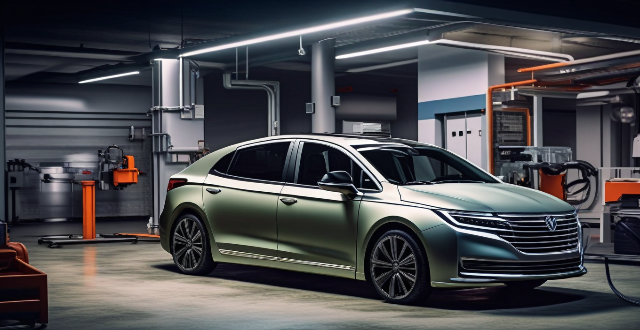
Are diesel hybrid cars more fuel-efficient than regular diesel cars ?
Diesel hybrid cars are more fuel-efficient than regular diesel cars due to the combination of a diesel engine and an electric motor, which optimizes fuel consumption and reduces emissions. They offer improved fuel efficiency, lower emissions, and better performance compared to traditional diesel vehicles.
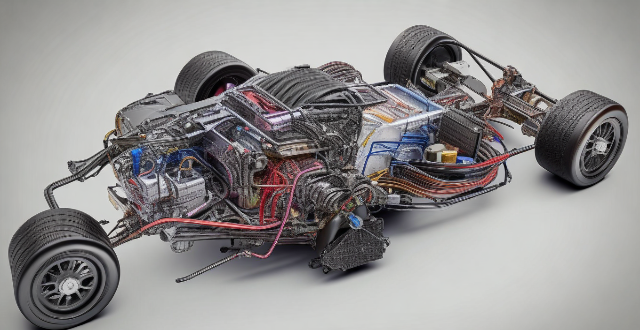
How do electric cars compare to hybrid cars ?
Electric cars run solely on electricity and produce zero emissions, while hybrid cars combine a gasoline engine with an electric motor for improved fuel efficiency. Electric cars offer environmental benefits and lower operating costs but have limited range and long charging times. Hybrids provide a balance between gasoline-powered vehicles and electric cars, with improved fuel efficiency and no range limitations but still rely on gasoline and produce emissions. The choice between the two often depends on individual needs and preferences.

How do power batteries compare to traditional gasoline engines in terms of cost and efficiency ?
Power batteries and traditional gasoline engines are two different types of energy sources that are used to power vehicles. In this article, we will compare the cost and efficiency of power batteries and traditional gasoline engines. Power batteries have a higher initial cost than traditional gasoline engines, but require less maintenance and have lower fuel costs. They also have a higher energy conversion efficiency and can recharge through regenerative braking. However, they have a limited range compared to traditional gasoline engines. Traditional gasoline engines have a lower initial cost than power batteries, but require more maintenance and have higher fuel costs. They also have a lower energy conversion efficiency and cannot recharge through regenerative braking. However, they have a longer range than power batteries. Overall, while power batteries have a higher initial cost and limited range compared to traditional gasoline engines, they offer several advantages in terms of cost and efficiency. As technology continues to advance, it is likely that power batteries will become even more cost-effective and efficient compared to traditional gasoline engines.

Can CHEVs be used for long-distance travel as effectively as conventional hybrids ?
Chevrolet (CHEV) vehicles can be used for long-distance travel just as effectively as conventional hybrid vehicles. However, it's important to understand the differences between the two types of vehicles and how they operate. CHEVs (Chevrolet Hybrid Electric Vehicles) are designed to offer improved fuel efficiency and reduced emissions compared to traditional gasoline-powered vehicles. Some popular Chevrolet hybrid models include the Chevrolet Volt and Chevrolet Malibu Hybrid. Conventional hybrids, also known as self-charging hybrids, use a combination of an internal combustion engine and an electric motor to power the vehicle. Unlike plug-in hybrids, conventional hybrids do not require external charging and rely on regenerative braking and the internal combustion engine to charge their batteries. Examples of conventional hybrids include the Toyota Prius and Honda Insight. Both CHEVs and conventional hybrids are designed to offer improved fuel efficiency compared to traditional gasoline-powered vehicles. However, CHEVs may have slightly better fuel economy due to their larger battery packs and more powerful electric motors. This means that CHEVs could potentially travel farther on a single tank of gas than conventional hybrids. While both CHEVs and conventional hybrids are capable of long-distance travel, their range will depend on several factors such as driving conditions, speed, and terrain. In general, CHEVs may have a longer range due to their larger battery packs and more efficient regenerative braking systems. However, this is not always the case, and some conventional hybrids may have similar or even better range depending on the specific model and driving conditions. One potential advantage of CHEVs over conventional hybrids for long-distance travel is their shorter charging time. Since CHEVs have larger battery packs and more powerful electric motors, they can be charged faster than conventional hybrids. This means that CHEVs may be able to spend less time at charging stations during long-distance trips. Both CHEVs and conventional hybrids require regular maintenance like any other vehicle. However, since CHEVs have more complex systems with additional components such as larger battery packs and electric motors, they may have higher maintenance costs compared to conventional hybrids. This could impact the overall cost effectiveness of using CHEVs for long-distance travel.

What is the fuel efficiency of a hybrid car ?
Hybrid cars are more fuel-efficient than traditional gasoline-powered vehicles, with an average range of 40-50 mpg in city driving and 35-45 mpg on the highway. This increased efficiency offers benefits such as reduced fuel costs, lower emissions, longer engine life, and potential tax incentives. If you're looking for a more environmentally friendly and cost-effective way to get around, consider purchasing a hybrid car.
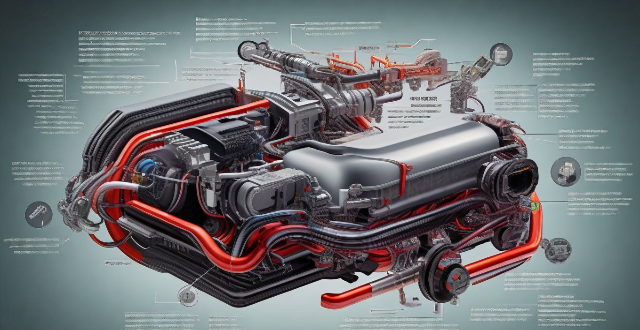
How do I install and maintain a combination motor drive system ?
A combination motor drive system, also known as an integrated drive system or hybrid drivetrain, is a complex assembly of components designed to deliver power from the engine to the wheels of a vehicle. It typically includes an internal combustion engine, one or more electric motors, and a transmission that may incorporate both mechanical and electronic control systems. This guide will walk you through the installation and maintenance process for such a system.